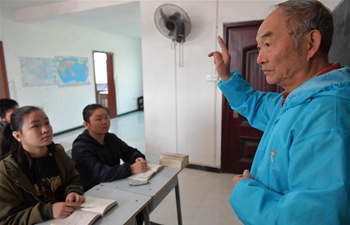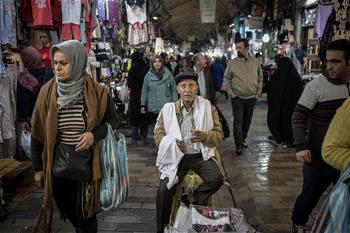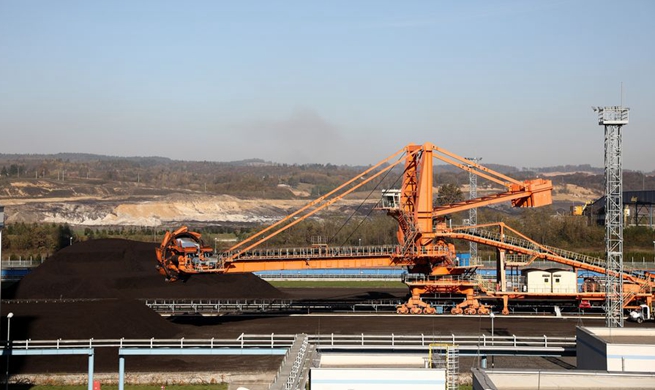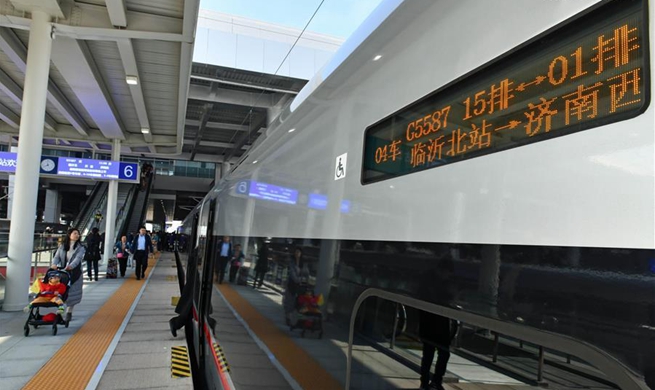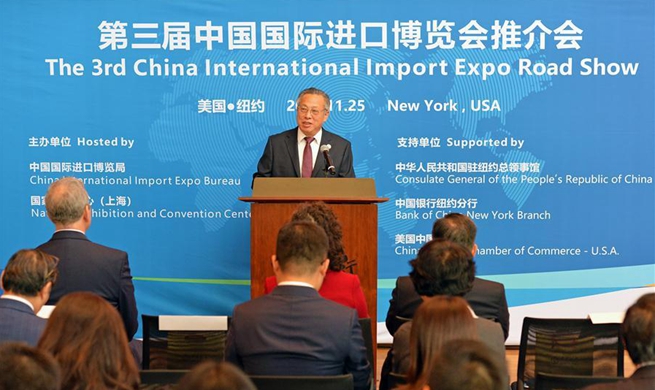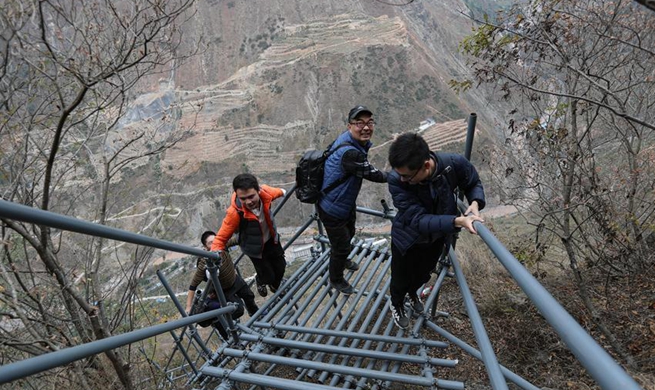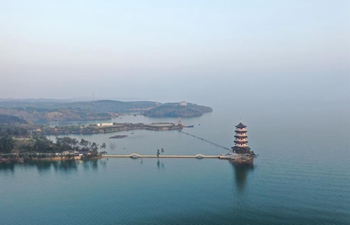TOKYO, Nov. 26 (Xinhua) -- Japanese Prime Minister Shinzo Abe on Tuesday vowed to fight discriminatory practices against former leprosy patients through governmental measures, with the pledge coming on the heels of new laws put in place to offer relief payments to those who have suffered from years of discrimination and prejudice here.
At a meeting held at his office in Tokyo, the Japanese premiere met with families of former leprosy patients, some of whom have suffered from years of abuse and discrimination under Japan's now-defunct controversial segregation policy related to the state's Leprosy Prevention laws.
The discrimination suffered by patients with leprosy, also known as Hansen's disease, included forced social isolation in sanatoriums, or special "medical clinics," which was just part of the standard practice to address the disease under the Japanese government's contentious Leprosy Prevention laws of 1907, 1931 and 1953, the last of which was only repealed in 1996.
The relief payments were enacted into law on Nov. 15 after a unanimous vote in Japan's upper house of parliament.
As well as offering the government's deep apologies to the families of former leprosy sufferers in a preamble, the law mandates that spouses, parents and children of former patients will be offered a lump sum of 1.8 million yen (16,500 U.S. dollars) as a "relief payment".
Other relatives who lived with the former sufferers of the disease, such as siblings, will be given about 1.3 million yen (12,000 U.S. dollars), under the new law.
Abe's first official apology to the families of former leprosy sufferers was made in July this year.
Abe's apology in person to representatives of the family members, came after the government here decided earlier in July that it would not appeal a court ruling handed down in Kumamoto Prefecture awarding the state to pay compensation to former leprosy patients' families.
The Kumamoto District Court in late June ordered the government to pay damages to the tune of around 370 million yen (about 3.4 million U.S. dollars) and in doing so ruling in favor of 541 plaintiffs.
Following a 2001 court ruling that found the segregation policy, that was brought into effect under the nation's Leprosy Prevention law, first enacted in 1907 and continued until 1996, was unconstitutional, Japan introduced a compensation system for leprosy patients.
Following the parliament enacting the law in November to grant relief payments to families, lawyers who had sued the government over the issue said that prejudice and discrimination still remain deep-rooted in Japan, despite the government's efforts to educate the public about the disease.
The lawyers also said the government needed to do more to eradicate the social stigma that is still associated with the disease.
On Tuesday, the representative for the families at the prime minister's office urged Abe and the government to continue to support the families in the face of continued social stigmas and stressed that mere relief payments should not be the government's final answer to the matter.
